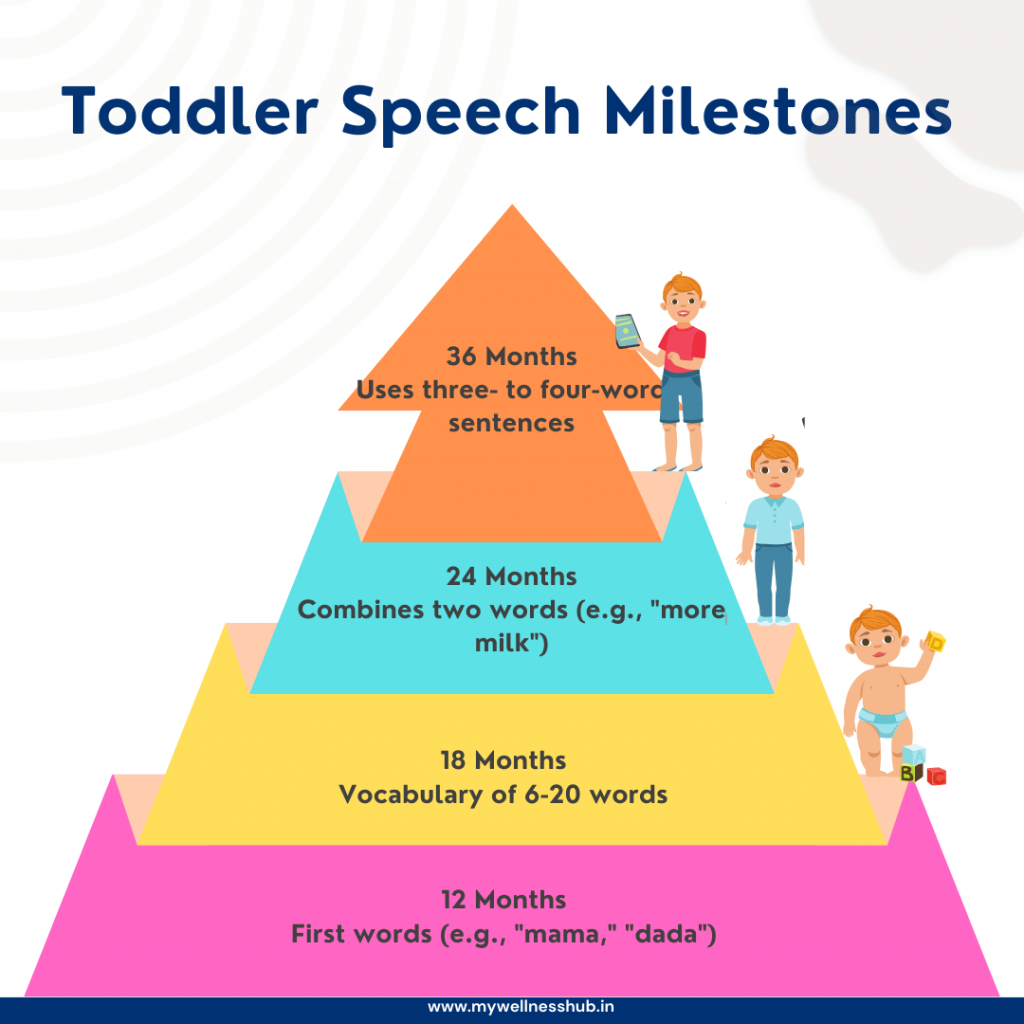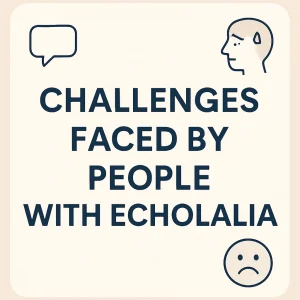Boost Your Toddler’s Speech with These Proven 6 Tips
By Rajini D
Last Updated: April 5, 2024
Welcome to the enchanting journey of parenthood, where every giggle, step, and word from your toddler feels like a milestone worth celebrating. The anticipation of hearing your little one utter their first words is a moment so special that it stays with you forever. It marks the beginning of a new chapter where “mama” and “dada” evolve into endless conversations filled with imagination and wonder. But what happens when the words don’t come as quickly as you expected or when you find yourself eager to hear more?
At Wellness Hub, we understand that encouraging your toddler’s speech development is a journey—a journey that you, as parents and caregivers, are an integral part of. It’s a path filled with joy, patience, and sometimes a bit of uncertainty. However, it’s also a journey where you’re not alone. With the right tips, strategies, and a little know-how, you can play a pivotal role in nurturing your child’s communication skills.
Understanding Toddler Speech Development

Embarking on the path to speech development is a thrilling adventure for both you and your toddler. Knowing the typical milestones can help you navigate this journey with confidence and joy. Toddler speech tips often start with recognizing when your child should begin talking. Most toddlers start to babble their first meaningful words around their first birthday. These early words are more than just sounds; they’re the foundation of your toddler’s speech ability.
By 18 months, a toddler’s vocabulary often expands to include about 10 to 20 words. This is the time to look out for simple phrases and the emerging ability to name familiar objects. The question “When should my toddler start talking?” has a broad answer because each child’s developmental timeline is unique. However, by the age of two, many toddlers begin combining words into short phrases, showcasing their growing language skills.
Also Read: The Early Years of Speech and Language
Creating a Rich Language Environment
Creating opportunities for conversation lies at the heart of fostering speech development and early language skills. This environment is where your toddler feels encouraged and supported to express themselves, try new words, and engage in the give-and-take of conversations. The significance of language development in toddlers cannot be overstated—it’s the bedrock upon which future communication skills are built.
Here are some ways to enrich your toddler’s language environment:
- Talk Throughout the Day: Narrate your activities together, describe what you’re doing, and talk about what you see around you. These everyday moments are opportunities for your toddler to learn new words and understand their meanings.
- Read Together: Sharing books is more than a quiet-time activity. It’s a chance to introduce your toddler to new vocabulary, concepts, and the rhythm of language. Ask questions about the story and pictures, encouraging your toddler to think and express their ideas.
- Play and Pretend: Engage in play that stimulates your child’s imagination. Pretend play allows toddlers to practice words and phrases they might not use in everyday conversation, expanding their understanding and use of language.
- Sing Songs: Music and nursery rhymes are not only enjoyable but also instrumental in teaching language rhythm, sentence structure, and vocabulary. The repetition of songs enhances memory and makes learning new words fun.
- Be an Active Listener: Show interest in your toddler’s attempts to communicate, even if their words aren’t clear. Encouraging their efforts and responding with positive reinforcement motivates them to keep trying.
By weaving these activities into your daily routine, you create a nurturing environment that celebrates discovery and learning at every turn.
Read more: 12 Activities to Boost Kids Speech & Language
Practical Tips to Encourage Speech
1. Ease the Pressure to Talk
Creating a pressure-free environment is crucial for encouraging your toddler’s speech development. The question “How can I help my toddler start talking?” often leads parents to intensify their efforts in urging their child to speak, which can sometimes have the opposite effect. Instead, focus on providing natural opportunities for your child to express themselves. Celebrate their attempts to communicate, even if it’s through gestures or babbling, and resist the urge to correct every mispronunciation. This approach fosters a love for communication, showing your toddler that their voice is valued and heard.
2. Play Intentionally
Intentional play is a powerful tool for enhancing your toddler’s language skills. Engaging in play activities that mirror real-life situations or involve imaginative scenarios encourages your child to use language to express ideas, solve problems, and interact with you. From setting up a tea party with stuffed animals to building a block tower and narrating each step, these activities offer fun ways to practice the language. Strategies to improve toddler language skills include using descriptive language during play, asking open-ended questions, and encouraging your child to describe what they’re doing or what they want to happen next.
3. Expand on What Your Child Says
When your toddler utters a word or phrase, seize the opportunity to expand on it. If they say “car,” you might respond with, “Yes, a big red car going fast!” This technique not only models more complex language structures but also shows them how to add detail and depth to their observations and thoughts. Enhancing your toddler’s communication skills involves celebrating their current abilities while gently pushing the boundaries of their language comprehension and usage.
4. Reading and Interactive Storytelling
The magic of reading together cannot be overstated in its importance for developing your toddler’s talking skills. Choose books with colorful pictures and engaging stories that invite interaction. Ask questions about the plot and the characters, offer your child to predict what will happen next, and encourage them to tell their own version of the story using the pictures as a guide. This interaction boosts comprehension and vocabulary, key components of toddler talking.
Know more about on Learn Alphabets with Fun: Engaging Kids & Special Needs
5. Offer Choices to Encourage Decision-Making and Speech
Presenting your toddler with choices is a simple yet effective method to stimulate language development. Whether it’s choosing between a banana and an apple for a snack or selecting which shirt to wear, these decisions encourage your child to use their words. This practice not only supports language development but also fosters independence and decision-making skills.
Explore more on our article Unlocking Speech Communication: Question Quest for Kids
6. Sign Language as a Support Tool
Incorporating sign language can offer a bridge to verbal communication, especially for toddlers who are late talkers. Teaching signs for “more,” “all done,” “please,” and “thank you” can give your child a way to express their needs and desires without the frustration that often comes with the inability to verbalize. This method encourages the development of communication skills and, as research shows, does not hinder the progression to spoken language. In fact, it often encourages the first words in early childhood by reducing communication-related frustration.
Learn more: What is the Relationship between Communication, Speech, and Language?
Strategies to Encourage Toddler Speech
| Strategy | Description | Example |
|---|---|---|
| Ease the Pressure | Avoid forcing your toddler to speak; instead, create a relaxed environment that encourages natural communication. | Instead of asking your child to repeat words, describe what you’re doing and wait for them to show interest or attempt to mimic you spontaneously. |
| Play Intentionally | Use playtime to focus on language development through storytelling and role-play. | While playing with a toy kitchen, narrate your actions (“I’m cooking soup!”) and encourage your toddler to do the same. |
| Expand on What Your Child Says | Build on your toddler’s words and phrases to model more complex language. | If your child says “car,” you could expand by saying, “Yes, a big red car that goes fast!” |
| Reading and Interactive Storytelling | Use books as tools for interaction, asking questions, and encouraging your child to describe pictures or predict story outcomes. | Ask open-ended questions about the story (“What do you think will happen next?”) and encourage your toddler to point to and talk about the pictures. |
| Offer Choices to Encourage Decision-Making and Speech | Give your toddler simple choices to motivate them to use words. | At snack time, ask if they would prefer an apple or banana, clearly articulating each fruit’s name and waiting for their verbal or non-verbal response. |
| Sign Language as a Support Tool | Incorporate basic sign language to reduce frustration and support verbal attempts. | Teach signs for common needs or desires, like “more,” “all done,” and “thank you,” using them in context to encourage speech through imitation. |
Implementing these strategies into your daily routine can create a rich linguistic environment that nurtures your toddler’s speech and language development. At Wellness Hub, we’re here to support you every step of the way with resources, advice, and encouragement as you and your little one embark on this exciting journey of discovery and learning.
Conclusion
As we wrap up our discussion on nurturing your toddler’s speech development, it’s essential to remember that every child’s journey to communication is distinct. The milestones serve as guidelines rather than strict timelines, offering a flexible framework within which your child can explore and grow at their own pace. The real treasure lies in the everyday moments of connection and understanding as your child discovers their voice. By integrating playful interaction, patient listening, and engaging storytelling into your daily routine, you create a nurturing environment that celebrates your child’s linguistic achievements, big and small.
In embracing this journey, remember that you’re not navigating it alone. WellnessHub stands with you, ready to offer support, resources, and guidance to ensure your family’s wellness and your child’s flourishing communication skills. The adventure of helping your child express themselves is one of the most rewarding aspects of parenting, filled with joyous milestones and shared discoveries. Let’s cherish each step of this journey together, fostering a bright future where every child’s voice is heard and valued.
Frequently Asked Questions:
1. At what age should I expect my toddler to start talking?
Most toddlers begin to utter their first words around their first birthday. However, speech development can vary widely among children. By 18 months, it’s common for toddlers to know at least 10 words.
2. How can I encourage my toddler to start talking?
Encourage your toddler’s speech by engaging in direct conversation, reading together, playing interactive games, and providing a nurturing environment that fosters curiosity and communication without pressure.
3. Are there specific toys or games that can help improve my toddler’s language skills?
Yes, toys and games that encourage imaginative play, such as dolls, action figures, and building blocks, can be highly beneficial. Interactive books and puzzles tailored to your child’s age can also promote language development.
4. What are some signs that my toddler might need help with their speech development?
If your toddler is not using any words by 18 months, shows difficulty understanding simple verbal requests, or is not using phrases by the age of 2, it might be a good idea to consult with a speech-language pathologist.
5. Can using sign language with my toddler delay their speech development?
No, using sign language does not delay speech development. In fact, it can facilitate communication and reduce frustration before toddlers are able to articulate their thoughts verbally. Many children who use sign language often transition smoothly to spoken language.
6. How much should I be talking to my toddler throughout the day?
Talk to your toddler as much as possible throughout the day. Narrate your activities, describe objects around you, and engage in back-and-forth conversations to model speech and language skills.
7. How can I make reading more interactive for my toddler?
Make reading interactive by asking questions about the story and pictures, encouraging your toddler to predict what happens next, and letting them turn the pages. Use different voices for characters to make the story more engaging.
8. What role does music play in toddler speech development?
Music plays a significant role in speech development by introducing rhythm, rhyme, and a variety of sounds that can enhance a toddler’s ability to distinguish and produce different sounds. Singing along to songs can also boost vocabulary and comprehension.
9. Should I correct my toddler every time they mispronounce a word?
Rather than correcting every mispronunciation, try to model the correct pronunciation within the flow of conversation. This approach is less discouraging and more encouraging for your toddler.
10. How can WellnessHub help with my toddler’s speech development?
WellnessHub offers a wealth of resources, including articles, expert advice, and community support, to guide parents through the journey of enhancing their toddler’s speech and language skills. Visit our website for more information and support tailored to your family’s needs.
About the Author:
Rajini Darugupally
M.Sc., Speech-Language Pathologist (9+ years of experience)
Rajini is a passionate and dedicated Speech-Language Pathologist with over 9+ years of experience, specializing in both developmental speech and language disorders in children and rehabilitation in adults. Driven by a desire to empower each individual to find their voice, Rajini brings a wealth of experience and a warm, genuine approach to therapy.
Currently, at Wellness Hub, she thrives in a team environment that values innovation, compassion, and achieving results for their clients.
Connect with Rajini to learn more about how she can help you or your loved one find their voice.
Book your Free Consultation Today
Parent/Caregiver Info:
Client’s Details:
* Error Message









